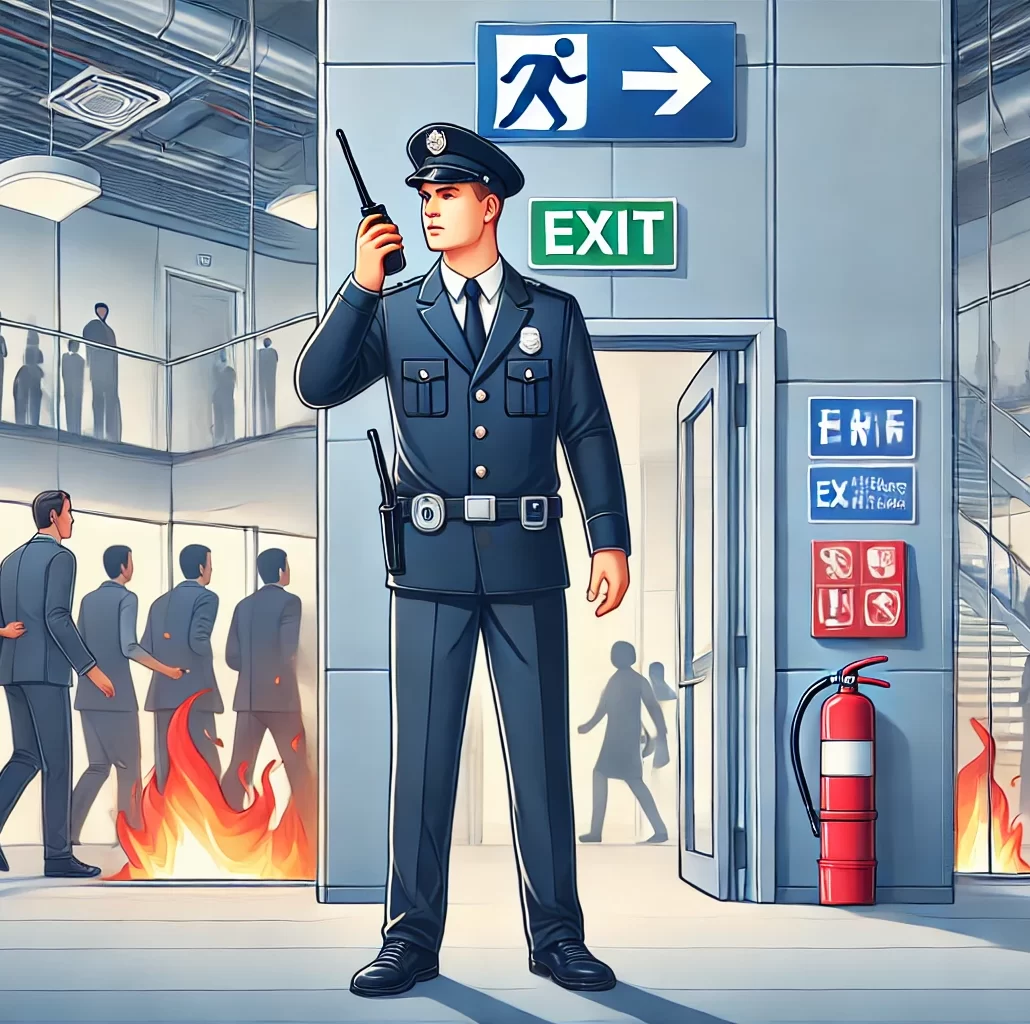Security guards play an indispensable role in maintaining safety and ensuring quick responses during emergencies. They are often the first line of defense in various situations and can make a significant difference in minimizing damage and saving lives. This article explores the essential role security guards play in emergency scenarios, emphasizing their responsibilities, skills, and training.
Importance of Security Guards in Emergencies
Security guards are vital in protecting people, property, and assets during emergencies. Their quick thinking, training, and ability to stay calm under pressure enable them to respond effectively to various critical situations. Whether it’s a fire, medical emergency, or natural disaster, their presence can prevent chaos and ensure smooth evacuation or crisis management.
Key Responsibilities of Security Guards in Emergencies
Security guards undertake several responsibilities to ensure safety during emergencies. Below are some of their primary duties:
1. Identifying Potential Threats
One of the critical roles of security guards is to identify risks before they escalate. They constantly monitor the environment, ensuring any unusual activity is quickly addressed. Early detection of risks such as fire hazards, suspicious individuals, or structural issues can prevent emergencies from occurring.
2. Immediate Response to Emergencies
Security guards are trained to act swiftly in emergencies. Their prompt actions, such as alerting emergency services, evacuating people, or using fire extinguishers, can reduce the impact of the situation. Their ability to stay calm ensures that they can guide others effectively without causing panic.
3. Crowd Management
In emergencies, managing crowds becomes crucial. Security guards help maintain order, ensuring everyone follows evacuation routes or safety protocols. This reduces the risk of stampedes and ensures safe exits during situations like fires or bomb threats.
4. Providing First Aid
Security guards are often trained in basic first aid. In medical emergencies, they can provide immediate assistance to injured individuals before paramedics arrive. This can be life-saving in critical situations like cardiac arrests or severe injuries.
5. Liaising with Emergency Services
Security guards act as a bridge between the organization and emergency services. They provide essential information to firefighters, police, or medical teams, ensuring that professionals can address the situation more efficiently.
Also Read:- Duties of Security Guard
Types of Emergencies Security Guards Handle
Security guards are equipped to handle a variety of emergencies. These include:
1. Fire Emergencies
In case of a fire, security guards play a key role in evacuation, using firefighting equipment, and alerting the fire department. Their training ensures minimal loss of life and property.
2. Medical Emergencies
Whether it’s a heart attack or an accidental injury, security guards provide first aid, call for medical help, and assist victims until professional help arrives.
3. Natural Disasters
During events like earthquakes or floods, security guards help people find safe zones, coordinate with rescue teams, and manage evacuation processes.
4. Criminal Activities
Security guards prevent and respond to criminal activities like theft, vandalism, or armed assaults. Their presence alone often deters criminals.
5. Workplace Hazards
In industrial or corporate settings, security guards address emergencies like chemical spills or electrical hazards, ensuring the safety of employees.
Skills and Training of Security Guards for Emergencies
Security guards undergo specialized training to handle emergencies efficiently. Below are some key areas of their training:
1. Crisis Management Training
This training focuses on preparing guards to remain calm and think clearly under stress. It also teaches them effective communication during emergencies.
2. Fire Safety Training
Guards are trained to use fire extinguishers, understand fire safety protocols, and conduct evacuation drills.
3. First Aid Certification
Many security guards are certified in first aid, enabling them to provide medical assistance during emergencies.
4. Communication Skills
Effective communication is crucial in emergencies. Guards are trained to provide clear instructions and relay critical information to emergency teams.
Why Security Guards are Essential During Emergencies
The presence of security guards during emergencies provides several benefits:
- Immediate Response: Security guards react quickly, reducing the impact of emergencies.
- Trained Professionals: They are well-prepared for a variety of situations, ensuring efficient management.
- Enhanced Safety: Their presence reassures employees, customers, and residents, fostering a sense of safety.
- Coordination: They act as a communication link between the public and emergency responders.
Also Read:- Difference Between Security Guards and Bouncers
How Organizations Can Support Security Guards
Organizations are crucial in ensuring their security guards are prepared for emergencies. Here’s how:
1. Regular Training Programs
Conduct regular training sessions to keep guards updated on the latest safety protocols and emergency procedures.
2. Providing Advanced Equipment
Equip guards with tools such as communication devices, fire extinguishers, and first aid kits.
3. Encouraging Drills and Mock Exercises
Frequent drills help security guards and employees understand evacuation routes and safety measures.
The Role of Technology in Enhancing Security Guard Efficiency
Technology significantly improves the effectiveness of security guards in emergencies:
- Surveillance Systems: Cameras help monitor and identify threats early.
- Communication Tools: Radios and smartphones enable quick communication with teams and emergency services.
- Alarm Systems: Guards can use alarms to alert everyone during an emergency.
Also Read:- How to Hire Security Guards in Delhi
Conclusion
Security guards are crucial in ensuring safety and minimizing risks during emergencies. Their training, quick response, and ability to manage challenging situations make them an integral part of any safety plan. Organizations must invest in their training and equip them with the right tools to enhance their efficiency. By doing so, they ensure the safety of employees, customers, and assets, even during critical situations.

